Detect, prioritize, and patch vulnerabilities efficiently with threat intelligence feeds and automation. Learn how to leverage the power of automation.



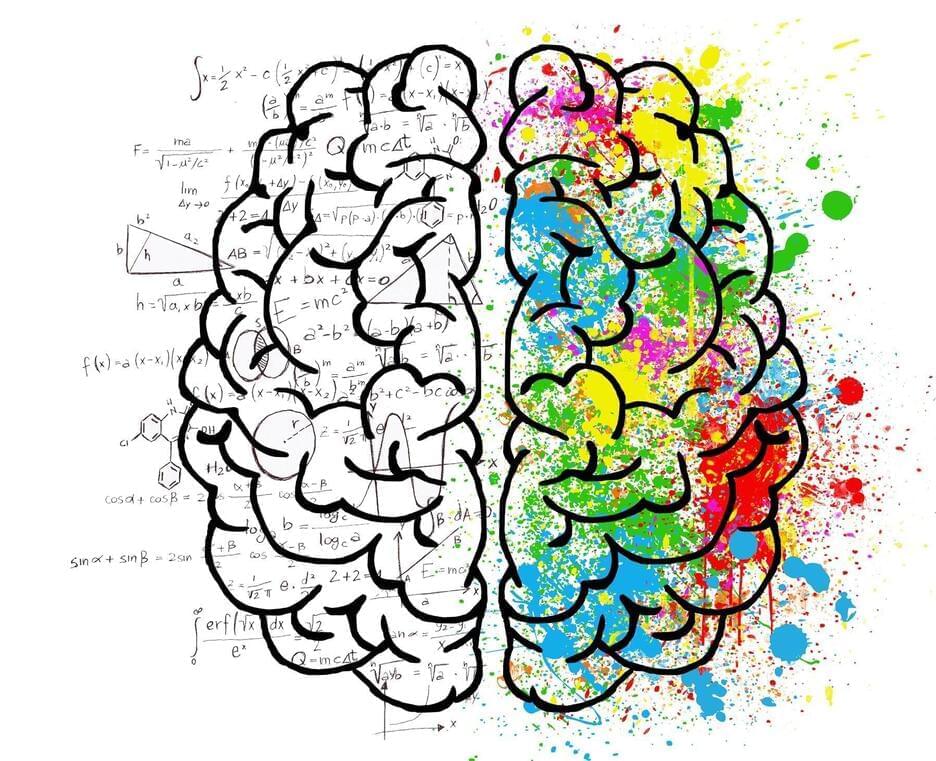
In a new landmark study, University of Minnesota research shows surprising links between human cognition and personality—pillars of human individuality that shape who we are and how we interact with the world. Personality influences our actions, emotions and thoughts, defining whether we are extroverted, polite, persistent, curious or anxious.
On the other hand, cognitive ability is the umbrella that reflects our capability for navigating complexity, such as articulating language, grasping intricate mathematics and drawing logical conclusions. Despite the prevailing belief that certain connections exist—for instance, introverted individuals are often perceived as more intelligent—scientists lacked a comprehensive understanding of these intricate connections.
The research, published in the Proceedings of the National Academy of Sciences, synthesizes data from over 1,300 studies from the past century, representing more than 2 million participants from 50 countries and integrating data from academic journals, test manuals, military databases, previously unpublished datasets and even proprietary databases of private companies.


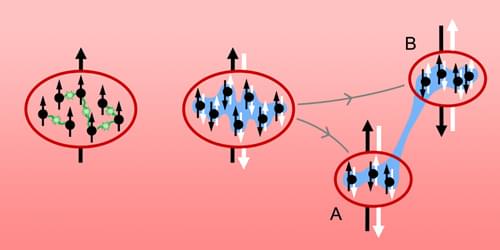
A new demonstration involving hundreds of entangled atoms tests Schrödinger’s interpretation of Einstein, Rosen, and Podolsky’s classic thought experiment.
In 1935, Einstein, Podolsky, and Rosen (EPR) presented an argument that they claimed implies that quantum mechanics provides an incomplete description of reality [1]. The argument rests on two assumptions. First, if the value of a physical property of a system can be predicted with certainty, without disturbance to the system, then there is an “element of reality” to that property, meaning it has a value even if it isn’t measured. Second, physical processes have effects that act locally rather than instantaneously over a distance. John Bell subsequently proposed a way to experimentally test these “local realism” assumptions [2], and so-called Bell tests have since invalidated them for systems of a few small particles, such as electrons or photons [3].
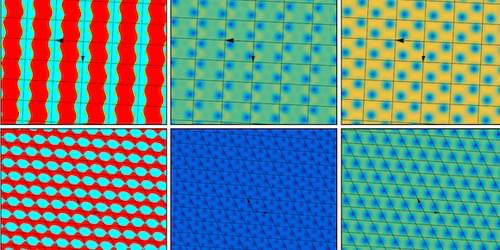
An unusual kind of superconductor harbors magnetic vortices that researchers predict should be readily observable thanks to the striped configurations they adopt.
In a nematic superconductor, electron pairs are bound more strongly in one, spontaneously chosen, lattice direction than in the others. This rotational symmetry breaking of the pairs’ wave function is just one of this type of superconductor’s unusual properties. A leading candidate to exhibit nematic superconductivity, copper-doped bismuth selenide, is also predicted to sustain surface charge-carrying quasiparticles known as Majorana fermions, which researchers think could be used for superconducting quantum technologies. What’s more, nematic superconductors harbor topological solitons known as skyrmions, whose complexity gives them many ways to arrange themselves and whose small size and low energy have attracted interest for data storage technologies. Now Thomas Winyard of the University of Edinburgh, UK, and colleagues have calculated the various skyrmion configurations that could arise in a nematic superconductor [1, 2].
The physicist Tony Skyrme came up with the concept of a skyrmion in 1961 when working on a particle physics problem. In the 2000s, the quasiparticle was then linked to condensed-matter systems when it was discovered that quasiparticles could also be used to explain magnetic vortices in certain thin films.
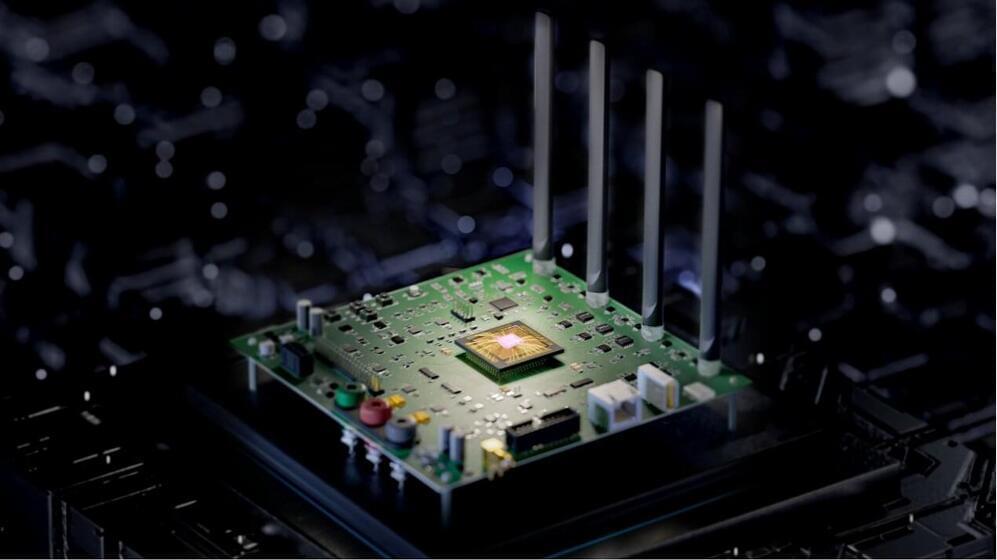
Advanced communication technologies, such as the fifth generation (5G) mobile network and the internet of things (IoT) can greatly benefit from devices that can support wireless communications while consuming a minimum amount of power. As most existing devices have separate components to perform computations and transmit data, reducing their energy consumption can be challenging.
Researchers at Nanjing University, Southeast University and Purple Mountain Laboratories in China recently devised a parallel in-memory wireless computing scheme that performs computations and wireless transmission concurrently on the same hardware. This design, introduced in Nature Electronics, is based on the use of mermristive crossbar arrays, grid-like structures containing memristors, electrical components that can both process and store data.
“In one of our previous works published in Nature Nanotechnology, we proposed the realization of massively parallel in-memory computing by using continuous-time data representation in a nanoscale crossbar array,” Shi-Jun Liang, one of the researchers who carried out the recent study, told Tech Xplore.
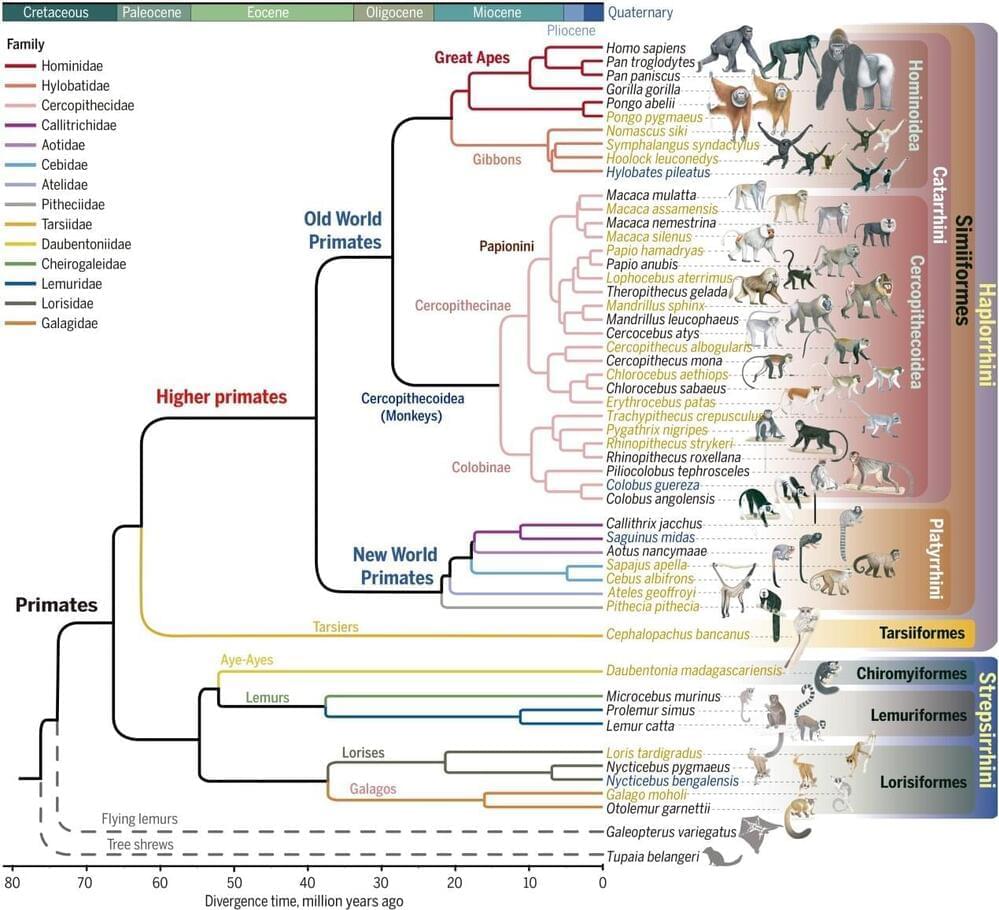
Researchers from Zhejiang University, Kunming Institute of Zoology, Northwest University, and Yunnan University, Aarhus University, and BGI-Research have jointly led a series of significant new studies are published in a special issue of the journal Science, and in papers in Nature Ecology & Evolution and Science Advances.
Co-led by Guojie Zhang from Centre for Evolutionary & Organismal Biology at Zhejiang University, Dong-Dong Wu at Kunming Institute of Zoology, Xiao-Guang Qi at Northwest University, Li Yu at Yunnan University, Mikkel Heide Schierup at Aarhus University, and Yang Zhou at BGI-Research, the Primate Genome Consortium reported a series of publications from its first phase program. The program includes high quality reference genomes from 50 primate species, of which 27 were sequenced for the first time. These studies provide new insights on the speciation process, genomic diversity, social evolution, sex chromosomes, and the evolution of the brain and other biological traits.
The comparative analysis of primate genomes within a phylogenetic context is crucial for understanding the evolution of the human genetic architecture and the inter-species genomic differences associated with primate diversification. Previous studies of primate genomes have focused mainly on primate species closely related to humans and were constrained by the lack of broader phylogenetic coverage.

How do you decide whether a pedestrian needs to wait or it’s safe to cross the road in front of a car? In today’s world, drivers and pedestrians simply exchange a brief eye contact or small hand gestures to express their intentions to one another. But how will future autonomous cars communicate? Researchers involved in the MaMeK project are seeking to answer this question. They will present their findings at the LASER World of PHOTONICS trade fair in Munich from June 27 to 30 (Booth 415, Hall A2).
Imagine a situation in which a cyclist isn’t sure whether an approaching car giving him way or not—but then a bright projection appears in front of the vehicle, indicating that it has detected the bike and is waiting for it. This is one example of how cars and humans might communicate with one another on the streets of the future.
Together with his team at the Fraunhofer Institute for Applied Optics and Precision Engineering IOF in Jena, Norbert Danz is looking at scenarios of this kind within the MaMeK joint project, which is focusing on projection systems for human-machine communication and involves partners including Audi AG. Two technological approaches are being pursued as part of this: displays shown directly on the car itself and holographic projections on the ground surrounding the vehicle. Fraunhofer IOF is responsible for the technology on which the latter of these cases is based.